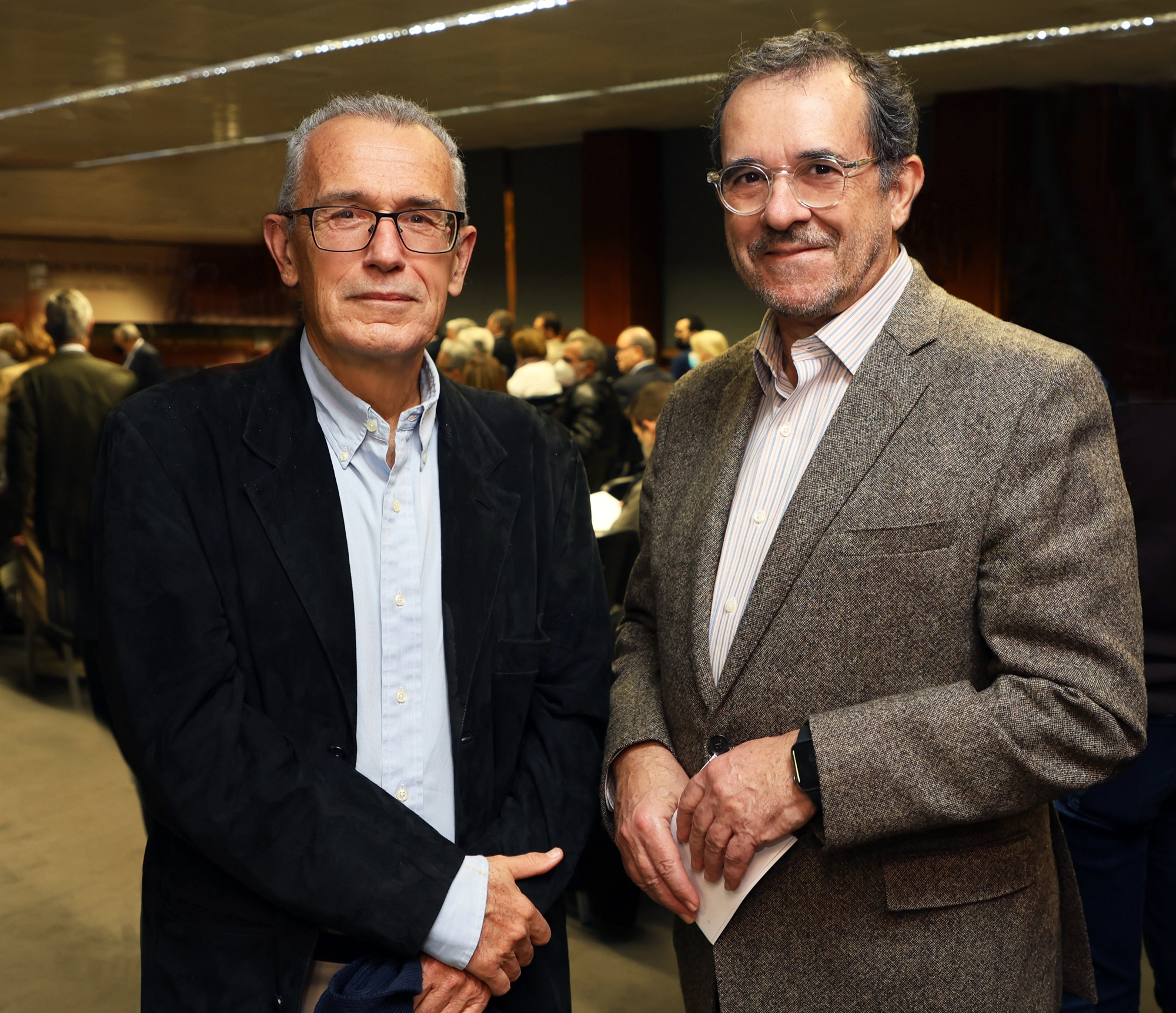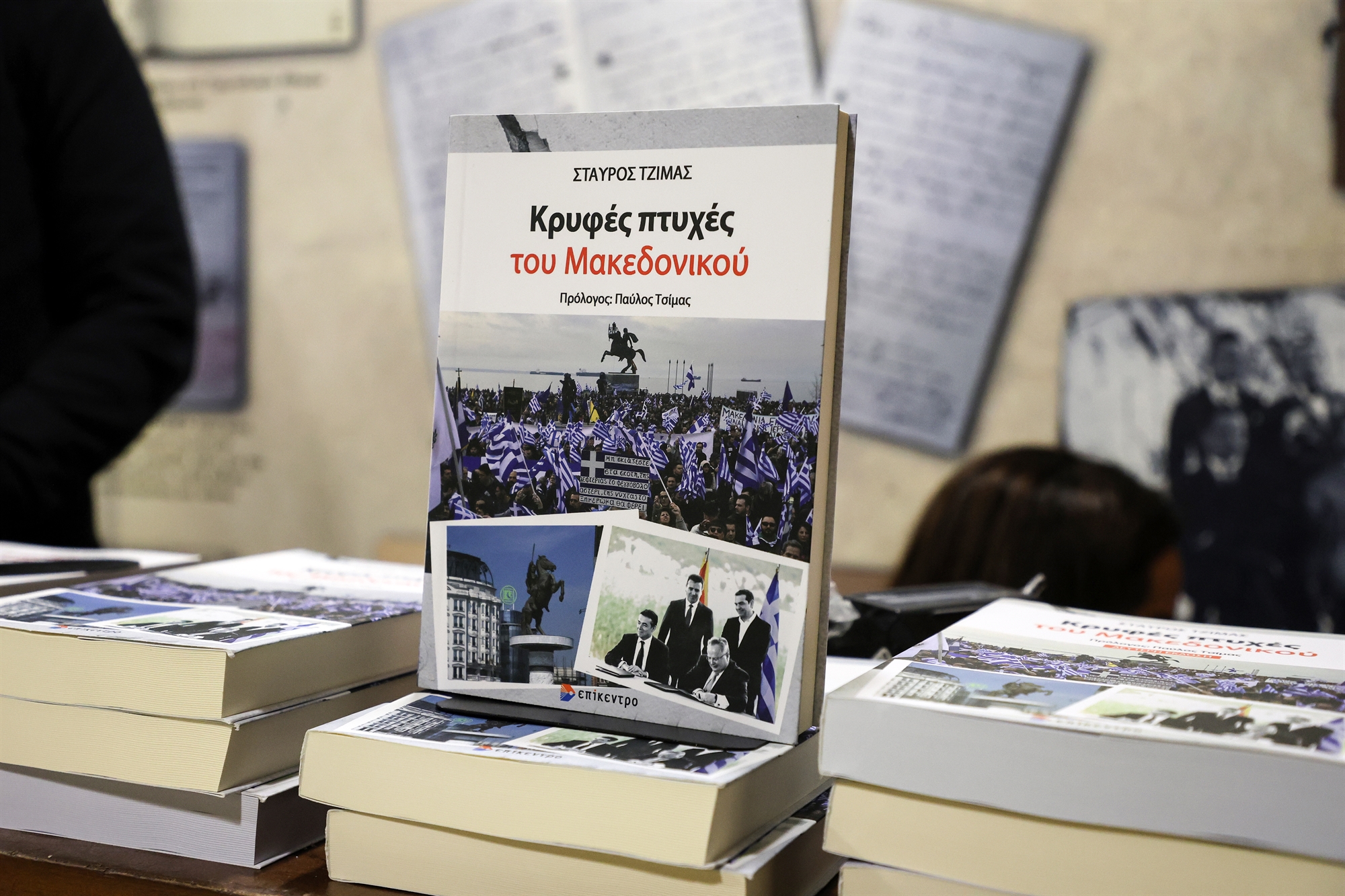
In a crowded ESIEA hall, in front of an audience that gathered, on the one hand, old and active diplomats, and on the other, journalists and readers, a presentation of the book of our beloved K colleague Stavros Tsim called “Secrets” took place. last night’s place of aspects of Macedonia” from the publications of Epicentro. The first to speak was the publisher himself, Petros Papasarandopoulos of Thessaloniki, Doctor of Balkan Studies and writer. He cited “identity insecurity” and the dilemmas faced by Greek foreign policy after the Skopje issue arose with the small nation’s 1991 declaration of independence. In the midst of these events, which lasted 30 years, the journalist Stavros Tsimas, who made primary reports with valuable (today) historical documents, not only in North Macedonia, but throughout the Balkans. In fact, this book is the third part of his trilogy after “The Breakup of Yugoslavia and Greek Fantasies” and the publication of “In the Constellation of Nationalism, Greece and Albania in the Post-Hoxha Era”.

Pavlos Tsimas called the book on the Macedonian language a valuable guidebook (reference book that is constantly consulted) not only for studying the history of the issue that divided the two countries, but also for thinking about the future of the region. At the same time, he emphasized the synthetic talent of a journalist who knows how to balance between the official narrative of politicians and the views of ordinary people. Alexis Papachelas, in turn, drew attention to Stavros Tsima’s craving for reporting, for recording in the field, which not only did not get tired after so many years of work, but remains inspired and prosperous. While Director K was talking about how the appetite for an on-site autopsy is further enhanced by a deep knowledge of History, I noticed that the good colleague had a little watery eyes, but he managed to contain his excitement: “Knowledge, research, screen and behind-the-scenes interviews, as well as writing talent make up this book,” concluded Alexis Papachelas.

Evangelos Venizelos, from the point of view of a politician who has closely encountered the solution of the issue of nomenclature from different positions, came to the conclusion that the Prespas Agreement, despite criticism of certain issues that may be affected by it, results in a positive conclusion, acquis, which allows Greece to play a role in the Balkans without suffering long-term conflict. Finally, the author himself spoke of the danger of separatist revivals, which might even lead us to a new war in the Balkans. On the other hand, he emphasized that this period of geopolitical tensions provides Greece with an opportunity to increase its power and influence in the region, using its ports in the northern part of the country, as well as the Alexandroupolis land corridor for trade and energy.

“We can become the breadwinner of neighboring societies and economies,” he stressed. All speakers agreed that the issue of the Prespa Treaty might seem like a solution to a long-standing problem, but history has shown us that the situation in the Balkans is never static and that diplomatic agreements come into force when they are accepted by society as well.
Source: Kathimerini
Ashley Bailey is a talented author and journalist known for her writing on trending topics. Currently working at 247 news reel, she brings readers fresh perspectives on current issues. With her well-researched and thought-provoking articles, she captures the zeitgeist and stays ahead of the latest trends. Ashley’s writing is a must-read for anyone interested in staying up-to-date with the latest developments.